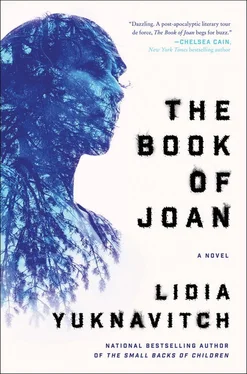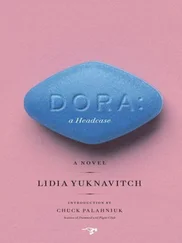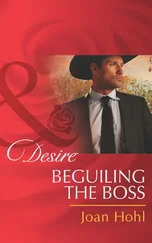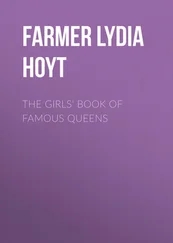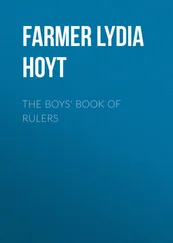The only thought I ever had thereafter was that you were my epic other in some new myth, that we had inherited this burgeoning underworld for the rest of our lives, that the choice would never have emerged if life had gone on as “normal” in the world.
Look: there’s no other way to say this. Whoever we are becoming is not part of any narrative I’ve ever known. If we are without history or origin or prophecy, what are we?
Could the story go someplace as yet unknown?
Our twinned de-evolution would leave no trace, like a spoken word—invisible, lost to molecules of air, subordinated to breath. There would be nothing to say that we’d been here at all, me most of all—all the tales of my supposed stupid heroisms—except at the surface of your exquisite skin.
Silent skinsongs.
That’s all we are.
I’ve wondered hundreds of times, since we lost humanity as we knew it: Is this what animals feel? Plants? Before we colonize and brutalize them away from their relationship to all matter? Think about it: What need is there for scientific discovery, or intellectual or cultural apex, if humanity is gone?
See? That’s not something to say aloud. There is no longer any reason to further a philosophy. There is only being. “Knowing” has one use-value that I can see: Does it extend survival and promote a thriving species, plant or animal? If not, it’s just the life of the mind, and the life of the mind has no telos without relationships to every other alive thing. That’s funny, isn’t it? Most of our greatest thinkers were shitty at relationships. Sometimes worse. Sometimes brutal.
Actually, I’m glad I never said that out loud to you! You’d have laughed your ass off, thrown me a bottle of something we distilled, cursed a little, sharpened Little Bee while shaking your head and staring into the fire.
It’s enough to suicide, truly, when I let myself think about all the genocidal suffering that transpired in the name of higher this or higher that.
What if it was always lower? Deeper. So microscopically tiny, tiny as atoms, so tiny it finally disturbed the possibility of opposition—so that the barely there met the infinite, a human eye the nebula and not the self.
I’m weeping again. Always crying. It has become a state of being rather than an emotionally isolated experience. I have to say, in the absence of people, it makes sense to cry as often as rain or ocean waves. In this I have lost my difference from the things around me.
Fuck it. I don’t know why I can’t just fucking talk to you. You are alone on this idiotic clod of dirt, with no way off or up or anywhere but to sit it out with the likes of me, and I can’t even talk to you, make conversation like a normal person—or tell you how I feel, or touch you, or more.
I remember every word you have ever said to me. At Naracoorte, you said the dusk and dawn had shifted polarities. You meant it metaphorically. We watched the so-called night sky turn to morning. You said we were no longer bound to night and day, and thus no longer bound to the shape of beginnings and endings.
At the Waitomo Caves in New Zealand, you said that cave life was like an entire epoch made of womb logic. I thought about that for an entire year. I decided you were more brilliant than anyone I’d ever known. I decided you meant that Earth carried other meanings than the ones we used to make culture. That we’d misinterpreted ourselves and taken the story in the wrong directions.
In what used to be eastern Ecuador, at Yasuni, you said we’d stepped Darwin-like into the most biodiverse ecosystem in the world. You said life trumps fuck. You did. You meant something about biodiversity outliving oil exploration. But I liked your phrasing for its preciseness and poetry. You said that the biologically richest place on the planet had murdered and buried money for all time. A hundred thousand insect species rose in chorus behind your voice.
In the Mammoth passageways, you admitted that you had loved America. You confessed that you loved movies. Hollywood movies in particular. As a young child. You said that the death of film grieved you more than the death of people. I didn’t believe you of course, but I’ve come to.
I remember small inconsequential things you said over the years as well. Like the time you told me that there was moss in my hair, and how you gently flicked it away. And then how you picked it back up and put it back in my hair, and smiled without a word, both of us realizing we were of the earth and each other and nothing else now, for the rest of time, whatever “time” had become.
What I want to tell you is bigger than this beautiful piece of paper. But it’s all I have.
This: you deserve so much better than me—the dumb and useless body that’s left of the story. You deserve a world better than this. You deserve whatever comes after human progress and its puny failures. You deserve the word “love,” spoken over and over again and untethered from prior lexicons, an erotic and unbound universe, the dead light of stars yet aching to stitch your name across the night sky, the ocean waters singing your body hymn to shore day into night into day.
This: your body, the word for it, strips me of mine.
If I am dead, read this aloud to the dirt. It’s a poem I memorized to stay alive when everything in me screamed otherwise. A woman wrote it. I’ve forgotten her name. I hope new names come for all of us. I memorized it as a young girl, before my girlhood was stolen from me. But promise to drink! You drank better than any man or soldier or person I knew—as did the poet. If I’ve gone to dirt and starstuff and water and space, let these be the parting signs spoken through the only throat I’ve ever loved, but couldn’t—tenderly as whisper—kiss properly.
Wound
Let fly the names like scattering birds,
let the story lines unbraid.
Forget your arms that were subtle wings,
forget your skin that was scale and fin,
forget your organs that were mammal bred,
see your death in the eye at birth.
Be rooted, branched, blown and carried.
Lie deeper than the womb will hold.
You are not only breath and bone
and you do not love alone.
Leone’s voice does not tremor or falter. When she finishes, she rips the paper into small pieces and consumes them, one at a time.
What is the word for her body?
My whole heart to Miles Mingo, who took long walks with me while I was writing this book wherein we figured out the shapes to both of our artistic projects. Spectacular collaboration. Unforeseen joy. Listen to children and young adults. They reflect whole galaxies.
Oceans of thanks to Rayhané Sanders, Laura Brown, and Calvert Morgan, without whom this book would simply not exist. Thank you for believing in my weird words.
Research mega-thanks (and love) to my brilliant brother-in-law David Craig, ornithologist and biology wizard, for helping me understand being.
Respect and thanks to fellow writer and artist Liz Asch both for her help on early versions of this book and for her undying support, which I needed so very badly when the dark came.
And to the love of my life, Andy Mingo, like a new world from which the everything is always becoming because of the surprising helix of love.
LIDIA YUKNAVITCH is the author of the national bestselling novel The Small Backs of Children , winner of the 2016 Oregon Book Awards’ Ken Kesey Award for Fiction as well as the Readers’ Choice Award; the novel Dora: A Headcase ; and three books of short stories. Her widely acclaimed memoir The Chronology of Water was a finalist for a PEN Center USA award for creative nonfiction and winner of a PNBA Award and the Oregon Book Awards’ Readers’ Choice Award. She founded the workshop series Corporeal Writing in Portland, Oregon, where she also teaches women’s studies, film studies, writing, and literature. She received her doctorate in literature from the University of Oregon. A book based on her recent TED Talk, The Misfit’s Manifesto , is forthcoming. She lives in Oregon with her husband, Andy Mingo, and their Renaissance man son, Miles. She is a very good swimmer.
Читать дальше
